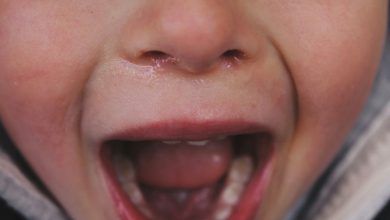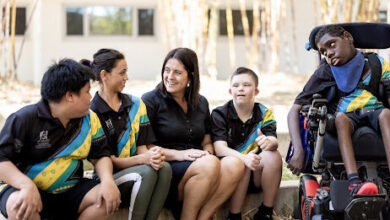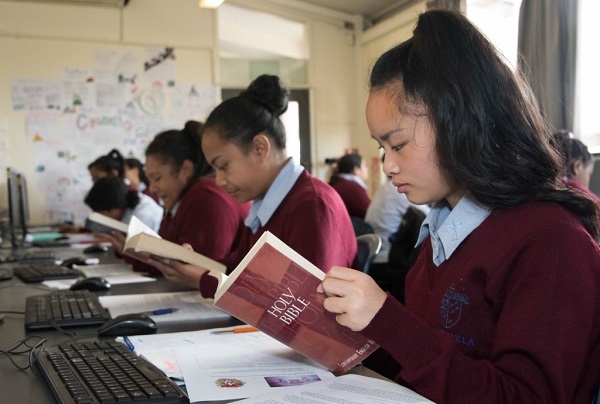
At McAuley High School in Otahuhu, South Auckland, there’s a big focus on building resilience. Many of the 800 students live in poverty, and learning to rise to very real challenges is considered key to their success.
Anne Miles is principal at the decile one school, which in 2016 took out the Prime Minister’s Supreme Award in Education Excellence as well as the trophy for Engagement. She shares the McAuley story:
McAuley High School’s vision statement is as follows: “Walking in the footsteps of Catherine McAuley, we to seek to realise our own potential as a community of learning, to answer the call of the Gospel by choosing to make a difference in the world, and to aim for excellence believing that everyone can achieve.”
“Our students achieve well above the national average in all areas of NCEA, and in 2016 we were awarded the Prime Minister’s Award for Excellence in Education. We are a community that is centred in the values and faith of the Catholic Church. Our mission statement indicates that we offer a quality Catholic education in the tradition of Mercy which challenges young women to strive for standards of personal excellence.
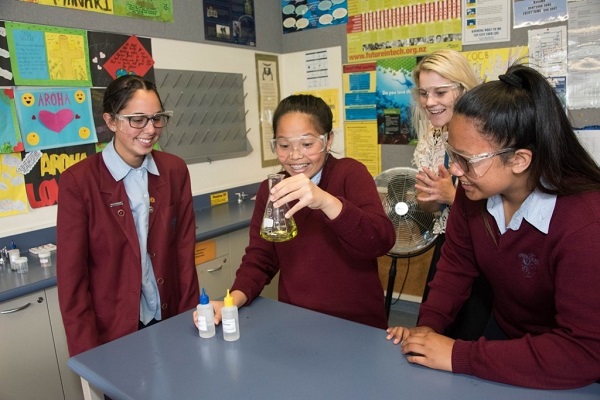
“We are proudly a decile one school in South Auckland with a role of 800 predominantly Māori and Pasifika students. As a multicultural school, where our cultural identities are acknowledged and celebrated, our students know where they come from and have developed clear goals and expectations of themselves.
“Families are welcomed into the school and every effort is made to liaise closely with the wider community. Parent evenings are held to welcome year nine entrants into the school. This is followed with information evenings for parents, report evenings and invitations to major school celebrations. All invitations are posted home and followed with a personal phone call. The principal and junior ambassadors visit all the feeder schools. Senior students, and the principal or chaplain, go out into the communities by attending church services.
“Students are encouraged to accept leadership roles from the time of their entry into the school. This is an inclusive school where the community is part of the school. Parents are always welcome and the principal has an open door policy.
Ensuring accessibility to all learning opportunities is vitally important. Students do not pay for LEOTC activities, and, if a need is identified, are provided with books, uniforms and lunches. We have two counsellors, two registered nurses, a social worker and access outside agencies when the need arises. Each student has equal opportunities. Differentiated learning is practised in the classroom and there is no streaming. An individual pathway of learning is provided for each student in consultation with both students and their parents.
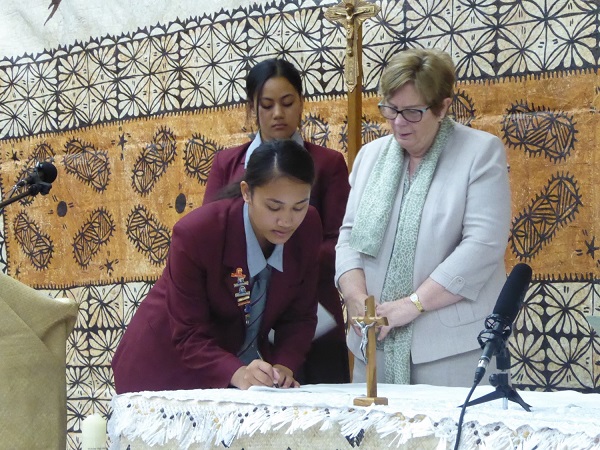
“Our school is based around the inquiry cycle and is in a constant cycle of review. We identify a need, determine a course of action and evaluate the outcomes. Our students are enabled to take ownership of their learning, inquire into their learning and set clear goals. As a community of learners, our teachers, students and all staff are on a shared journey. Teachers model the learning journey and our professional learning groups are based around our school goals, the needs of our students and our own professional needs. The professional development opportunities presented to staff are very important. As a result of continuous pedagogical research and investigation, the school, for example, introduced and trialled the flipped classroom approach. The staff are eager to learn and meet one morning per fortnight to share and compare different pedagogical approaches.
“The use of accurate data is crucial to ensuring success. At the end of year eight there is extensive testing of new entrants using MYAT, e-asTTle and Progressive Achievement Tests. All data is triangulated, is regularly obtained and updated. Pastoral and attendance data plus results of common assessment tasks add to the body of knowledge of a student. The data is used to assist and support student learning. Programmes and remedial processes can be introduced to enhance learning. There is intensive tracking of achievement.
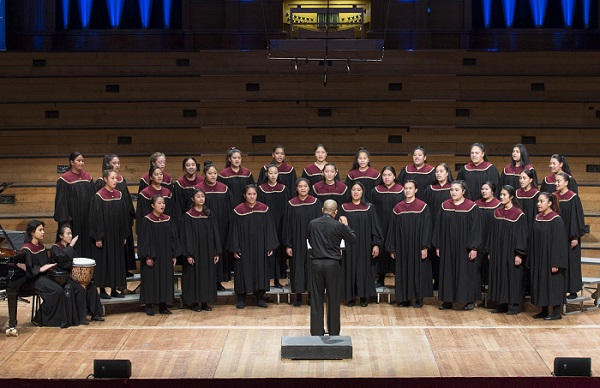
“Student feedback is encouraged at all levels. Teachers are encouraged to determine the impact of their lessons on their students. Students feel comfortable in providing honest feedback. It can be anonymously completed or it could be verbal. The students know that their voice is heard.
“The building of relationships of mutual respect between teacher and students is vital. Students need to know that they are valued and that there are very high expectations of them. There are no excuses for not achieving to the best of your ability. Aiming high is an expectation.
“Honesty is very important. Our reporting system was reviewed to enable us to provide accurate and honest feedback to our parents. Our report feedback evenings are usually extremely well attended and we encourage our students to attend with their parents. There is not a discussion of behaviour, rather there is discussion of academic goals and future aspirations. Support is provided to students who may be experiencing difficulties and challenges are provided to those who need to be extended. An individual pathway for each student is very important.
“Our students need to build resilience. Many come from families struggling financially. Some parents work at several jobs and our students have major responsibilities at home. Others face real barriers at home with sick and ailing family members, overcrowding and poverty. Our students have, as one of their goals, a determination to support their families in the future. These circumstances are not seen as a barrier but rather as a challenge. As a school we provide support, encourage and motivate. Our aim is to lift up but not to create a dependence on financial assistance.
“We also appreciate the beauty and dignity of our families, their deep faith, love of their children and determination to give their daughters a future.”



